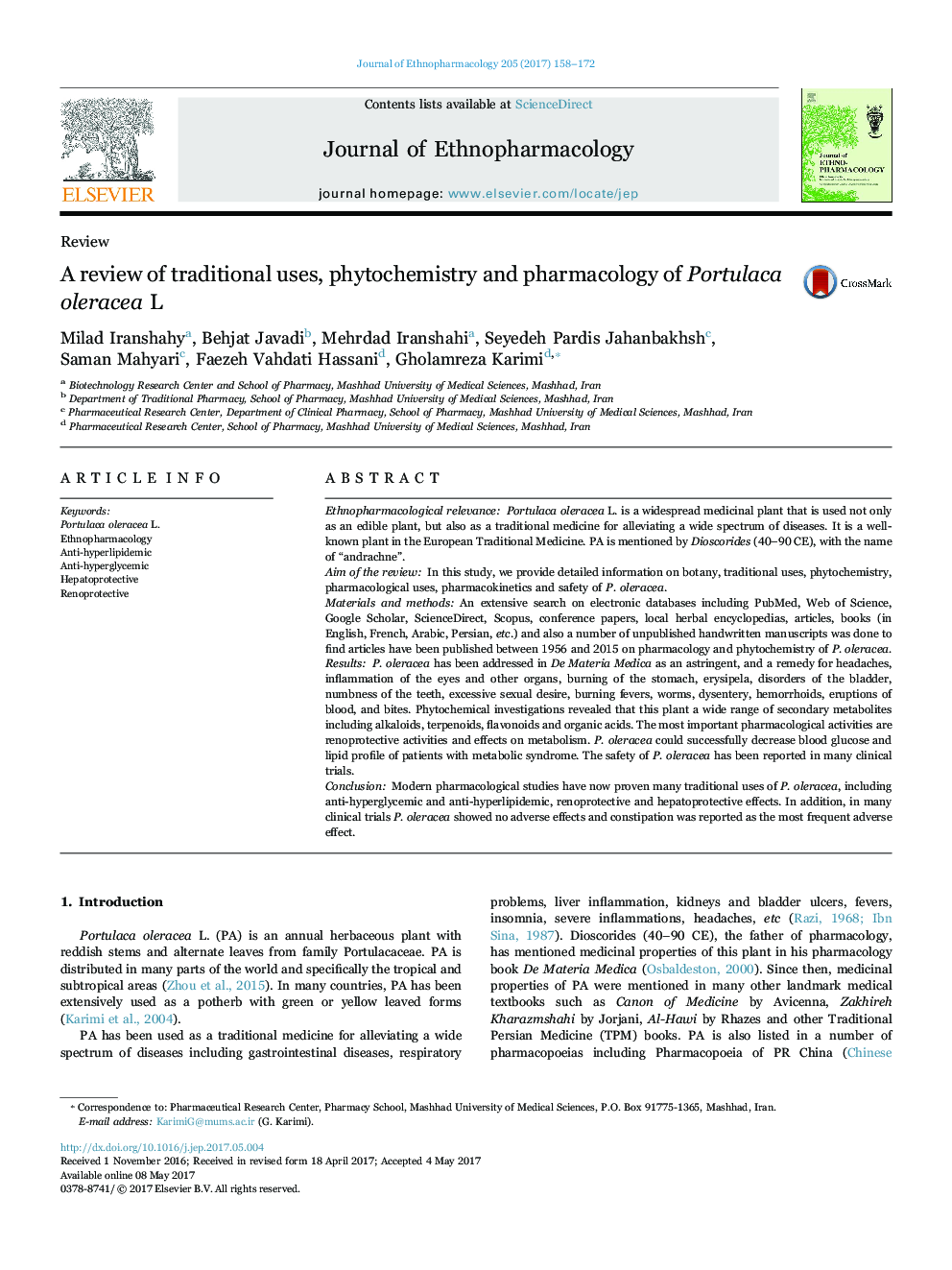| کد مقاله | کد نشریه | سال انتشار | مقاله انگلیسی | نسخه تمام متن |
|---|---|---|---|---|
| 5556067 | 1560357 | 2017 | 15 صفحه PDF | دانلود رایگان |

Ethnopharmacological relevancePortulaca oleracea L. is a widespread medicinal plant that is used not only as an edible plant, but also as a traditional medicine for alleviating a wide spectrum of diseases. It is a well-known plant in the European Traditional Medicine. PA is mentioned by Dioscorides (40-90 CE), with the name of “andrachne”.Aim of the reviewIn this study, we provide detailed information on botany, traditional uses, phytochemistry, pharmacological uses, pharmacokinetics and safety of P. oleracea.Materials and methodsAn extensive search on electronic databases including PubMed, Web of Science, Google Scholar, ScienceDirect, Scopus, conference papers, local herbal encyclopedias, articles, books (in English, French, Arabic, Persian, etc.) and also a number of unpublished handwritten manuscripts was done to find articles have been published between 1956 and 2015 on pharmacology and phytochemistry of P. oleracea.ResultsP. oleracea has been addressed in De Materia Medica as an astringent, and a remedy for headaches, inflammation of the eyes and other organs, burning of the stomach, erysipela, disorders of the bladder, numbness of the teeth, excessive sexual desire, burning fevers, worms, dysentery, hemorrhoids, eruptions of blood, and bites. Phytochemical investigations revealed that this plant a wide range of secondary metabolites including alkaloids, terpenoids, flavonoids and organic acids. The most important pharmacological activities are renoprotective activities and effects on metabolism. P. oleracea could successfully decrease blood glucose and lipid profile of patients with metabolic syndrome. The safety of P. oleracea has been reported in many clinical trials.ConclusionModern pharmacological studies have now proven many traditional uses of P. oleracea, including anti-hyperglycemic and anti-hyperlipidemic, renoprotective and hepatoprotective effects. In addition, in many clinical trials P. oleracea showed no adverse effects and constipation was reported as the most frequent adverse effect.
199
Journal: Journal of Ethnopharmacology - Volume 205, 9 June 2017, Pages 158-172